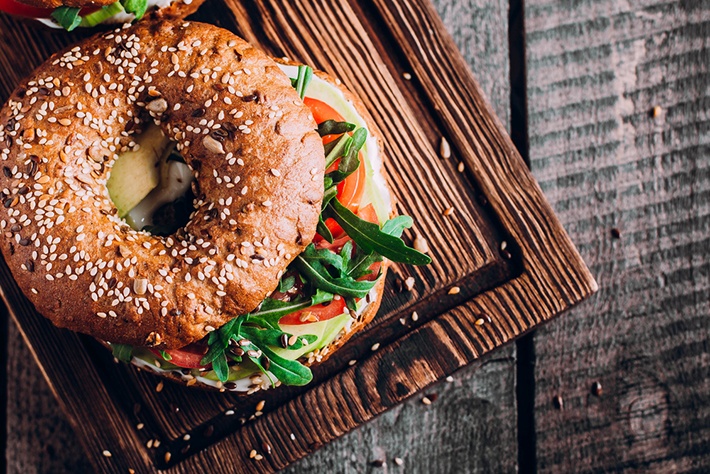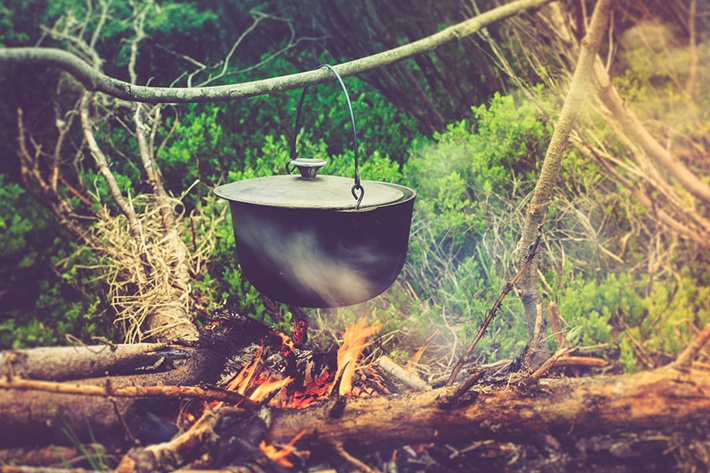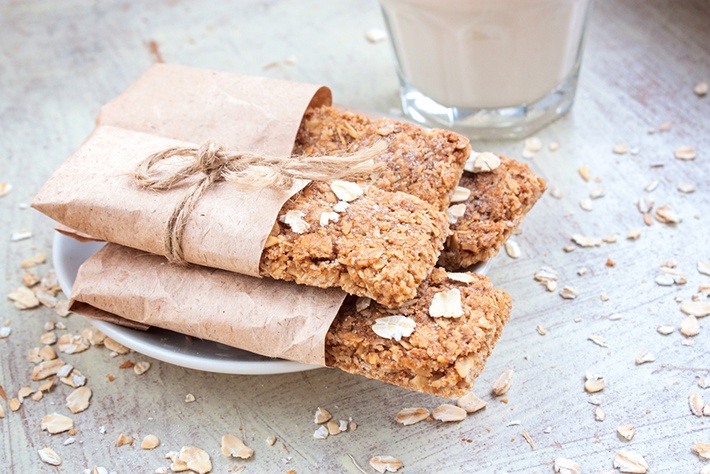No matter how long you plan on hiking, you have to have your meals for the day ready, so your body can complete your demanding tasks.
Many of the pre-packed foods available in the stores are not a good solution because the foods are over-processed and can’t last long enough for a backpacking trip.
The ideal foods for backpacking should be lightweight, full of nutrients and good energy providers. And they should be able to last long enough to cover your trip.
Check my advice on vegetarian backpacking meals and start the hiking adventure!
More...
Picking the Vegetarian Backpacking Meals Based on the Budget

Before you plan on your meals, you should set a budget, so you know what you are working with. Then you can choose the foods you wish to bring along.
The good and simple solution is the dehydrated fruit and energy bars to regain energy on the go.
As for the complete meals, check the prices of the ingredients for your favorite meal and see if it fits your budget.
Plan on three meals and don’t forget about the snacks which will be very useful when hiking for a long time and that energy hunger starts.
Vegan Breakfast Foods List

I have seen a lot of vegetarian backpackers starting their day with a cold meal. You can do something simply by adding water to oats, and you can add some dehydrated fruits.
To make sure that the breakfast will provide enough energy for the start, add some sunflower seeds, nut butter, and marinated peanuts.
Breakfast should be rich in protein, iron and it should provide energy for the proper start of the day.
One more good energy provider and storage friendly is any kind of bagel. You can pack them easily; they can stay fresh for a long time, and combined with paste they can make a great breakfast.
You can even throw some vegetables on top, like cucumber, tomato or peppers.
I found that the easiest and quickest breakfast with a lot of energy is a bagel with peanut butter.
Peanut butter is alone rich in calories, and when combined with a bagel it provides a lot of energy to burn when hiking early in the morning.
To top everything that, instead of water, drink a glass of milk, and your body will have enough energy and nutrients for great hiking performance.
The Lunch Break for Vegetarian

Instead of bringing bread along for backpacking lunch, bring few tortillas. They are a great base on which you can work and create a lot of different meals at once.
You can add a mix of vegetables with cheese and sauce. Beans are always great in a wrap, add a little corn and rice, and you will have a protein-rich energy bomb.
For a sweet option, you can cover the tortilla in peanut butter with dark chocolate, baby food or jam.
Baby food has much less bad sugars and much more vitamins than your conventional jam, and they are in smaller packages, making them ideal for backpacking.
While breakfast should be richer in protein, lunch should be more focused on the energy.
So focus on putting more carbon-hydrates in the tortilla than proteins. Hydration is, of course, the most important, so make sure you drink a lot of water.
For the after-lunch refreshment, the good thing to have would be some green juice drink to stay hydrated and to maintain the levels of minerals and vitamins in your body.
Energy drinks can be a good substitute.
Vegetarian Evening Meal

Since you will be active for most of the day, dinner should be something cooked and warm to help you relax and rest.
Of course, you don’t have an unlimited source of heat in the outdoors, so you should consider the cooked dinner that doesn’t take a lot of time to be done.
Noodles are a great solution, they are cooked very fast, and they are filling. Dinner should be light, so something simple as noodles will do just fine.
If you want to make a bit richer soup, you can bring tomato paste and dehydrated vegetables and make soup in no time.
Some people don’t like to have dinner at all, but a light pre-night snack.
If you’re one of these people then bringing a pack of cookies and tea will be your dinner of choice.
Or my personal favorite, oatmeal cookies with milk. It’s lightweight, rich in protein needed for the night, and the warm milk helps me fall asleep faster.
Related Posts:
Vegan Hiking Snacks

Snacks are a great energy provider for any form of physical activity. Have some snacks with you all the time, with a bottle of water or juice.
Whenever you feel in need of the energy, you can refill really quickly and continue your adventure.
You can take a lazy option and stack up on energy bars, or you can make your own snacks which is a better and cheaper option.
Why better?
Because you don’t need that much sugar which can be found in many energy bars. You can make a mix of nuts and seeds with dehydrated fruits which are healthier, and they will provide you with more nutrients than an energy bar.
I like to have a small bag of peanuts, popcorn kernels, almonds and pumpkin seeds ready for my cravings. And I’m matching that with a water bottle that is filled with mangos (homemade of course).
Conclusion
To round everything up, check your budget, and plan your meals accordingly.
Make sure your breakfast is protein based, lunch carbon-hydrate based and dinner should also be protein based and lightweight.
Don’t forget about the snacks and stay hydrated at all times. The homemade options are always better than the ones you can buy premade.
You will have a high-quality food which you will pay less. Of course, you can always get some MRE’s, but be sure you get informed about them first.
Do you think this kind of meals would be enough for you? Do you have more ideas and some of your own tricks and vegetarian backpacking meals? If so, please share them with me!
